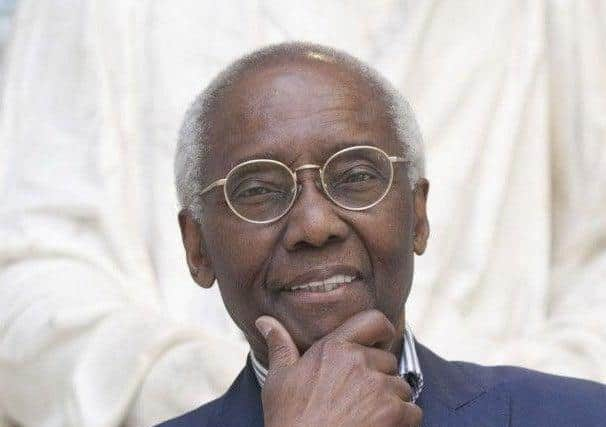Sir Geoff Palmer shares "hugely poignant" evidence of slave trade on Antiques Roadshow
and live on Freeview channel 276
On the Easter Sunday episode of the show filmed at Culzean Castle on the Ayrshire coast, the emeritus professor had silver sugar basins and tongs valued that he acquired as evidence of the sugar trade.
Sir Geoff, who is leading the Edinburgh Slavery and Colonialism Legacy Review Group, said the silver items were a stark reminder of the 630,000 slaves forced to wait more than a decade for their freedom after the abolition was delayed by controversial Scottish figure Henry Dundas.
Advertisement
Hide AdAdvertisement
Hide AdOne of the bowls valued for Sir Geoff was a Scottish basin made by George Fenwick of Edinburgh dated 1806, one year before the delayed abolition of slave trading by British Ships in 1807.


Sir Geoff said: "After the 200 year commemoration of the abolition of the slave trade I decided to look at sugar, because it was one of the main reasons for slavery. I thought I would find some evidence of this and acquired these silver items. What is important is the date period. Wilberforce decided slavery should immediately be abolished in 1791. However, Henry Dundas, decided the abolition should be gradual. On the basis of that one word we have calculated that more than 630,000 Africans were transported into slavery. While slaves were working and dying, people in the UK were consuming the sugar in these bowls and using these tongs.”
"To me, these bowls and tongs tell us the sort of things we do in order to make money and to have the lifestyle we think we deserve.”
Presenter Gordon Foster said: “These insights are hugely poignant. Over the years I’ve seen many silver items related to the taking of tea but have never really considered that link with slavery. It's deeply moving. I don’t think I can look at silver sugar basins in the same way again.”
Advertisement
Hide AdAdvertisement
Hide AdLast month the city council approved plans to add a plaque to the Melville Monument denouncing Henry Dundas’ role in deferring abolition of the slave trade and his role in expanding the British Empire.
Sir Geoff previously called for statues to remain where they are and for educational information to be made available at the sites.
A message from the Editor:Thank you for reading this article. We're more reliant on your support than ever as the shift in consumer habits brought about by coronavirus impacts our advertisers.If you haven't already, please consider supporting our trusted, fact-checked journalism by taking out a digital subscription.
Comment Guidelines
National World encourages reader discussion on our stories. User feedback, insights and back-and-forth exchanges add a rich layer of context to reporting. Please review our Community Guidelines before commenting.